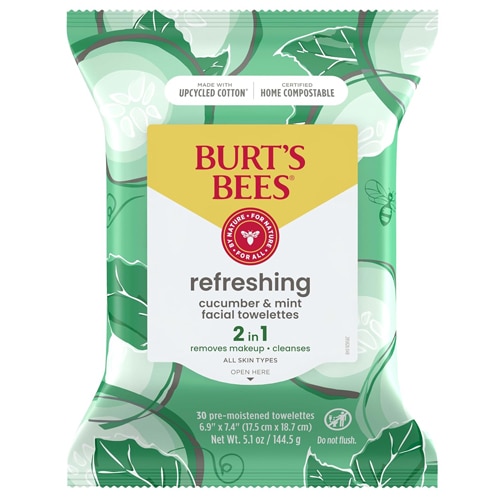[vc_row][vc_column][vc_column_text]A new study sounds the alarm about how the presence of certain chemicals in plastics might increase the risk of diabetes in white women.
The
study, published in February 2023 in the Endocrine Society’s
Journal of Clinical Endocrinology & Metabolism, found that white women exposed to high levels of some phthalates had a 30% to 63% greater chance of developing type 2 diabetes. These chemicals were not linked to higher rates of diabetes in Black or Asian women, the researchers behind the study say.

What are phthalates?
Phthalates are chemicals that make plastics more durable and flexible, and extend the life of scents. Phthalates can be found in items such as cosmetics, personal care products, cleaning products, plastic packaging, garden hoses and medical tubes.
In the Endocrine Society study, researchers studied 1,308 women enrolled in the Study of Women’s Health Across the Nation (SWAN) over six years to see whether
phthalates contributed to the incidence of diabetes. About 5% of the women developed diabetes during the six-year period. The risk of diabetes climbed only among white women in the study.
“Our research is a step in the right direction towards better understanding phthalates’ effect on metabolic diseases, but further investigation is needed,” one of the researchers, Sung Kyun Park of the University of Michigan School of Public Health, says in a news release.
Phthalates are endocrine disruptors, which mimic or interfere with the body’s hormones. Exposure to phthalates has been linked to breast cancer, developmental issues, decreased fertility, obesity and asthma,
according to Breast Center Prevention Partners, a nonprofit organization.
“Although some regulations
ban phthalates in certain products intended specifically for young children, they are still widely used in many consumer products,” says the breast cancer group.
Research published in 2023 suggested that switching to phthalate- and paraben-free personal care products could reduce the risk of developing breast cancer,
Environmental Health News reported.
The health effects of phthalates
Researchers, environmentalists and others continue to raise concerns about the presence of phthalates in consumer products.
A
study published in the research journal Environmental Pollution connected phthalates to 90,761 to 107,283 premature deaths a year of Americans ages 55 to 64. The study estimated the annual productivity loss due to those deaths at $39.9 billion to $47.1 billion.
Russ Hauser, a professor of reproductive physiology and professor of environmental and occupational epidemiology at Harvard University,
stresses that it’s largely up to manufacturers to voluntarily reduce or eliminate the use of phthalates. He believes these chemicals should be restricted or banned in consumer products.
“Even though some products do list phthalates, it’s really hard for consumers to read the labels with these long chemical names. It’s really hard for even a very knowledgeable consumer to buy products and avoid phthalates,” says Hauser.
Manufacturers generally maintain that products containing phthalates are safe. For example, the Personal Care Council, a trade group for makers of cosmetics and personal care products, insists personal care products remain among the safest categories of products regulated by the FDA.
“Federal law mandates that all cosmetic manufacturers substantiate the safety of their products and the ingredients used in them before they are marketed to the public,” the council says in a
2013 statement. “The safety and health of consumers of all ages who use and enjoy our products remain the highest priority for our industry. Consumers can continue to use the personal care products they have trusted and relied on for years and be confident in their safety.”
Reducing your exposure to phthalates
The government of Westchester County, New York,
offers these five suggestions for decreasing exposure to phthalates.
- Carefully read the label to see whether a product contains phthalates. If you’re unsure, contact the product’s manufacturer.
- Buy fragrance-free products.
- Don’t use plastic containers in microwave ovens.
- Use refillable glass, porcelain and stainless-steel containers for food and beverages, especially for hot foods and liquids.
- On a container made of plastic, examine the small triangle on the bottom. Steer clear of plastic containers marked with a 1 or 7. Instead, choose those marked with a 2, 4, or 5 to reduce potential exposure to phthalates.
[/vc_column_text][/vc_column][/vc_row][vc_row][vc_column][vc_text_separator title="Featured Products" border_width="2"][vc_row_inner equal_height="yes" content_placement="middle" gap="35"][vc_column_inner width="1/3"][vc_single_image image="166189" img_size="full" alignment="center" onclick="custom_link" img_link_target="_blank" css=".vc_custom_1681939110484{padding-right: 7% !important;padding-left: 7% !important;}" link="https://www.vitacost.com/thinkbaby-the-bento-box-light-blue"][/vc_column_inner][vc_column_inner width="1/3"][vc_single_image image="166190" img_size="full" alignment="center" onclick="custom_link" img_link_target="_blank" css=".vc_custom_1681939134951{padding-right: 7% !important;padding-left: 7% !important;}" link="https://www.vitacost.com/ecover-zero-dish-soap-fragrance-free-25-fl-oz"][/vc_column_inner][vc_column_inner width="1/3"][vc_single_image image="166188" img_size="full" alignment="center" onclick="custom_link" img_link_target="_blank" css=".vc_custom_1681939176956{padding-right: 7% !important;padding-left: 7% !important;}" link="https://www.vitacost.com/burts-bees-facial-cleansing-towelettes-for-normal-to-dry-skin-cucumber-and-sage"][/vc_column_inner][/vc_row_inner][/vc_column][/vc_row]




